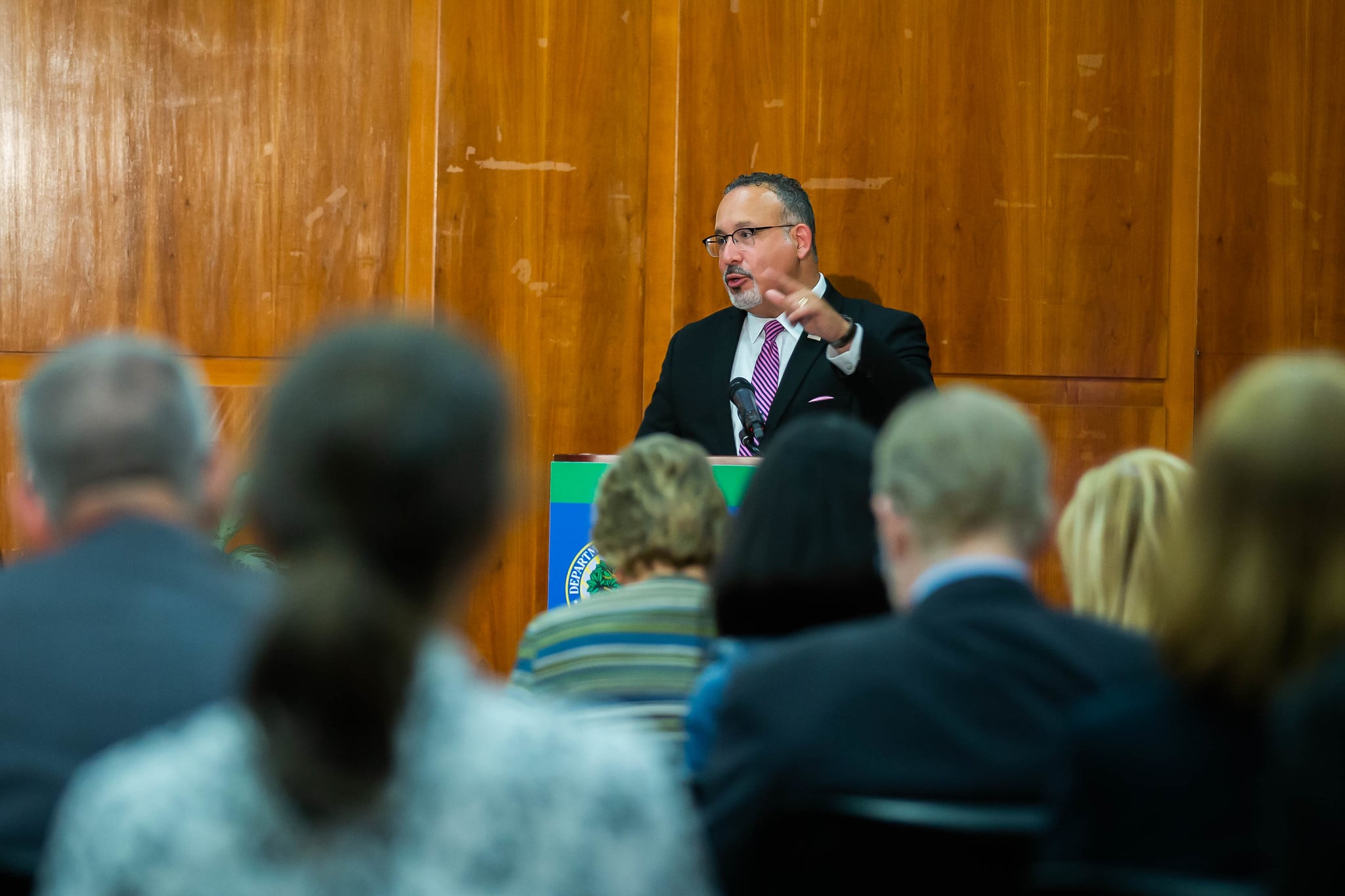The nation’s education secretary said it’s time to boost teacher pay and add new kinds of support for educators struggling after two and a half pandemic school years.
“We need to prioritize education, not just when schools are closing, but when they’re open, and we need to level up and raise the bar,” said Miguel Cardona in a speech Thursday. “I’m using the bully pulpit to say, the last few years I’ve been fearing and fighting COVID. The next two years, I’m going to be fearing and fighting complacency.”
Cardona spoke to an audience of educators in New York City, where he pushed his vision for “supporting and uplifting” teachers in the midst of “enormous challenges.”
He called for action, saying increasing teacher salaries is key to increasing retention.
“We could talk all we want about supporting teachers, we could show up with coffee and donuts in May on Teacher Appreciation Week,” he said. “But how we show that we value them is by our wallets.”
As of 2019, the average teacher salary was $63,645, a figure that has barely budged in decades. On average, teachers make about 20% less than other college graduates, with an even wider gap in 25 states. The typical starting salary is $41,770. (These numbers don’t include health care and retirement benefits, though, which are often better for teachers than private sector workers.)
The secretary touted the Biden administration’s latest federal budget proposal, which included $350 million for programs meant to improve teacher recruitment and retention, $132 million to improve teacher preparation, and $20 million to increase teacher diversity. The budget proposal also seeks to add $19 billion in Title I funding, which could help schools pay teachers more.
But Cardona’s speech belied an awkward reality: he has little power to enact his vision. There is no indication that such investments will be approved by Congress. Biden’s first budget was dramatically scaled back by lawmakers, and this year’s proposal could face a similar fate.
Ultimately, teacher salaries are based mostly on state and local decisions, which Cardona has little ability to influence.
On Thursday, Cardona linked pay with another challenge facing schools: convincing teachers to stay in the classroom after the challenges of the pandemic.
“Out of crisis, there’s opportunity,” Cardona said. “So let’s use this moment of disruption, not to build it back the way it was. That’s not good enough.”
He encouraged districts and states to use federal COVID relief dollars for pay increases or bonuses — and some already have — though those funds are temporary and dwindling.
So far, there’s been no indication of a substantial increase in the number of teachers leaving the classroom during the pandemic. Teacher turnover was slightly up in some states going into this school year, but that followed unusually low turnover the year before.
Teachers usually leave during the summer, so it’s too soon to say whether quit rates will increase after this year. A number of school districts have reported a sharp uptick in teachers leaving mid-year, and surveys suggest that teacher stress remains high.
In addition to teacher pay, Cardona said that the Public Service Loan Forgiveness program, teacher residencies, and guided leadership and mentorship programs could be tools for ensuring teachers are well prepared and incentivized to stay.
“We need to have resources, training, and make sure that our educators are supported in this process,” Cardona said. “As we support the whole child, we must also support the whole educator.”







